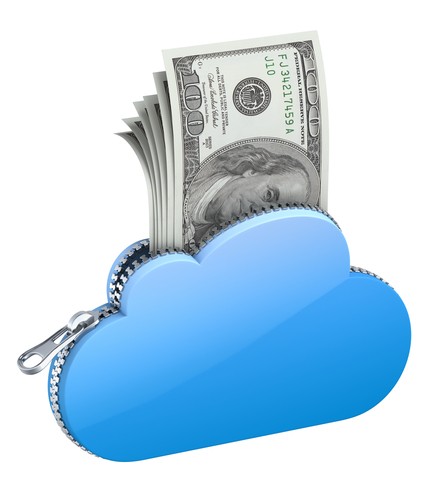The beauty industry is booming, with startups constantly emerging to cater to the ever-growing demand for innovative products and services. However, amidst the glamour, these startups often face significant challenges in managing their inventory efficiently.
In this blog post, we will delve into the obstacles that beauty startups encounter and explore how IT experts can play a pivotal role in overcoming these challenges, ultimately leading to improved profitability.
But before we move forward, I have been into startups for more than 6+ years. During these years I have spent tons of hours understanding startups and geopolitics. At my company Rudvar, we help companies build their software products and help them out of their toughest product problems.
Challenges Faced by Beauty Startups:
1. Inventory Overstock and Understock Issues:
Beauty startups often grapple with the delicate balance of having enough stock to meet customer demands while avoiding excess inventory that can lead to financial losses. IT solutions can implement predictive analytics to forecast demand accurately, preventing both overstock and understock situations.
These days there has been a surge of organic material in beauty products. People love to see their products getting more and more plant-based. However one of the downsides of this is the decaying process. Adding excessive chemicals can ruin the quality.
Machine learning concepts like ARIMA/SARIMA and exponential Smoothing and regression models can be used efficiently for predictive analytics to forecast demand. By using these we can prevent excessive wastage of product.
2. Product Shelf Life Management:
Understanding the fact that every product has a certain shelf life. Shops, dealers, and sellers sometimes don’t care for shelf life, they just want to sell the product. These kinds of situations destroy a brand. So it becomes quite important to maintain a software infrastructure that maintains the shelf life of products.
Beauty products have varying shelf lives, and managing them effectively is crucial to avoid losses due to expired inventory. IT systems can implement real-time tracking and automated alerts to ensure that products are sold or removed from shelves before reaching their expiration dates.
3. Supply Chain Inefficiencies:
The food and beauty industry is sensitive to delivery time. Customers don't like waiting for products. If the wait time is huge, they will start using some other similar product.
However, if the product is good, customers will wait for it. But at what cost? If there’s more delay in delivery the more is the market you are loosing. So it is quite necessary to reduce to maintain a good supply chain.
The beauty industry relies on a complex supply chain, making it susceptible to delays and disruptions. IT solutions can enhance supply chain visibility, allowing startups to anticipate and mitigate potential issues, thereby ensuring a smooth flow of products from manufacturers to customers.
The heuristics and the exact optimization model were all designed to find the best sites for every point in a supply chain, and then determine the cost of putting that supply chain in place.
Case Studies — Success Stories with IT Solutions:
1. GlowBeauty: From Chaos to Control with Inventory Management Software:
GlowBeauty, a rising beauty startup, faced inventory mismanagement issues, leading to financial setbacks. By implementing tailored inventory management software provided by IT services, GlowBeauty achieved a 30% reduction in overstock, leading to a substantial increase in profits.
2. EcoChic Cosmetics: Sustainable Growth Through IT Integration:
EcoChic Cosmetics, a startup committed to eco-friendly beauty products, struggled with supply chain disruptions. IT experts integrated a comprehensive supply chain management system, enabling EcoChic Cosmetics to maintain steady production and meet the increasing demand for sustainable beauty products.
The Hershey Supply Chain Disaster in 1999:
As for all chocolate makers, Halloween is a trick-or-treat cash-fest. It’s their sales sweet spot. In 1999, Hershey spent more than $100 million on transforming its IT infrastructure and supply chain. Expected to go live in April 1999, the schedule slipped, and rather than wait until the following year, Hershey switched over in the summer. But the system was dogged with issues, not least of which was that inventory was not visible to the order management system. As a result, $150 million in orders were missed. Quarterly profit dropped by 19 per cent and the company’s stock value plummeted.
Technology’s Impact on Operations and Customer Experiences:
1. Streamlined Operations with Automation:
IT solutions, such as automated order processing and real-time inventory tracking, can significantly streamline operations. This not only reduces the risk of errors but also allows startups to allocate resources more efficiently, improving overall productivity.
2. Enhanced Customer Experiences with Personalized Recommendations:
Technology, including machine learning algorithms, can analyze customer preferences and purchase history to provide personalized product recommendations. This not only fosters customer loyalty but also increases sales by offering tailored suggestions that align with individual tastes.
3. Online and Mobile Platforms for Accessibility:
IT experts can help beauty startups establish user-friendly online and mobile platforms. This not only expands the market reach but also enhances the overall customer experience by providing easy access to products, promotions, and personalized beauty tips.
At Surge startup, we have built software for companies that solves real-world problems. If you think, you have any similar requirements, then feel to mail us at abhi@surgestartup.com or ping me at https://linkedin.com/in/abhishekhpatnaik77.
In the competitive world of beauty startups, efficient inventory management is a key factor that can make or break a business. By embracing IT solutions, startups can overcome inventory-related challenges, reduce losses, and create a more seamless experience for their operations and customers.
We consult/develop supply chains for startups from scratch. I would love to hear from you if you have any similar requirements.
BLOG




